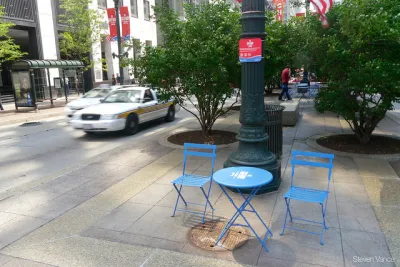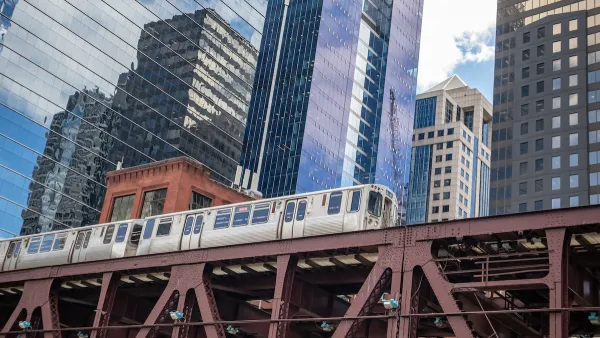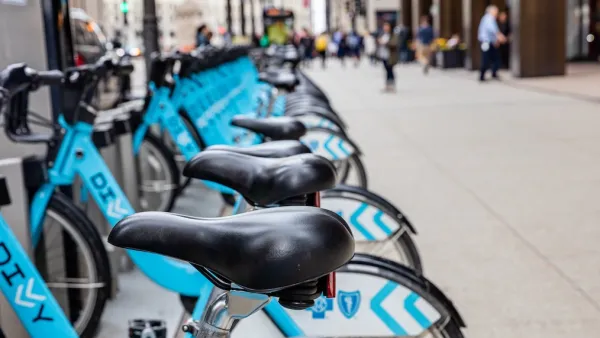Launched with neighborhood-friendly ambitions, Chicago's people plaza program was meant to create revenue-generating gathering places. A Chicago Tribune editorial says it's hard to find any people at the plazas, however.

The Chicago Tribune's editorial board revisits the "people plazas" ideas put forward by Mayor Rahm Emanuel as a way to reinvigorate vacant city-owned lots. The ideas as to create live music venues and art exhibits, and offer a place to "gather, mingle, shop at pop-up stores, dance even" in residential neighborhoods.
The editorial board offers a blunt assessment of the people plazas program, however: "Almost two years later, there's something missing from the people plazas. People." The editorial provides more background on how the program was meant to launch and operate:
The program was supposed to transform 49 pieces of vacant or underused city-owned land into gathering places "that reflect the unique and dynamic cultures of the various neighborhoods," according to the city's bidding documents. The hope was that the plazas would eventually become self-sustaining — companies would be permitted to advertise at the plazas, as well as sell food or merchandise. The city would get a 10 percent cut of the net profits, and the company hired to make the people plaza project happen, Latent Design, would get the rest.
The Tribune has found no evidence that the program has achieved even middling success. So far the city has spent $164,000 on the program while raising only $8,000 in revenue. The editorial thus suggests that both the Mayor's Office and the alderman with people plazas in their districts apply more pressure for results.
[Ed's note: the Tribune says the people plaza program was launched in 2015, but we see evidence of the term dating back to 2013.]
FULL STORY: Chicago's unpopulated 'people plazas'

Analysis: Cybertruck Fatality Rate Far Exceeds That of Ford Pinto
The Tesla Cybertruck was recalled seven times last year.

National Parks Layoffs Will Cause Communities to Lose Billions
Thousands of essential park workers were laid off this week, just before the busy spring break season.

Retro-silient?: America’s First “Eco-burb,” The Woodlands Turns 50
A master-planned community north of Houston offers lessons on green infrastructure and resilient design, but falls short of its founder’s lofty affordability and walkability goals.

Test News Post 1
This is a summary

Analysis: Cybertruck Fatality Rate Far Exceeds That of Ford Pinto
The Tesla Cybertruck was recalled seven times last year.

Test News Headline 46
Test for the image on the front page.
Urban Design for Planners 1: Software Tools
This six-course series explores essential urban design concepts using open source software and equips planners with the tools they need to participate fully in the urban design process.
Planning for Universal Design
Learn the tools for implementing Universal Design in planning regulations.
EMC Planning Group, Inc.
Planetizen
Planetizen
Mpact (formerly Rail~Volution)
Great Falls Development Authority, Inc.
HUDs Office of Policy Development and Research
NYU Wagner Graduate School of Public Service




























